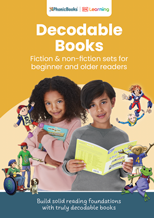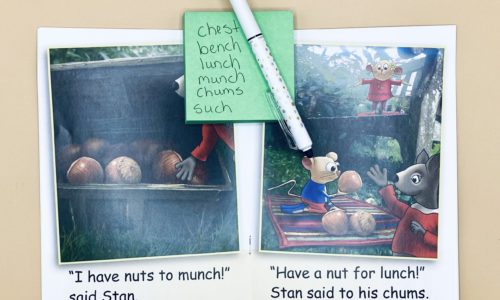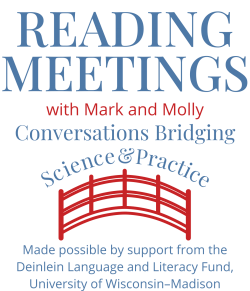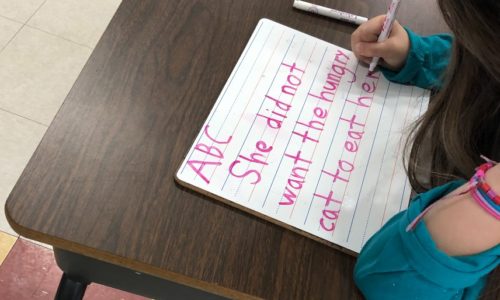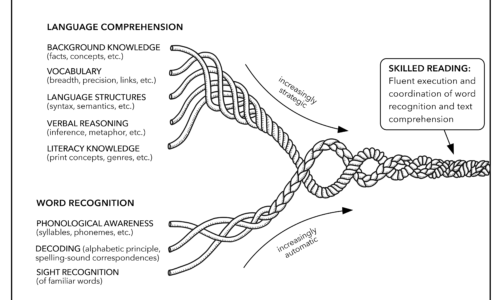
Scarborough, H. S. (2001). Connecting early language and literacy to later reading (dis)abilities: Evidence, theory, and practice. In S. Neuman & D. Dickinson (Eds.), Handbook for research in early literacy (pp. 97-110). New York: Guilford Press. Teaching the Reading Rope The Reading Rope was developed by Dr. Hollis Scarborough to provide a framework for understanding the different…
Read More
